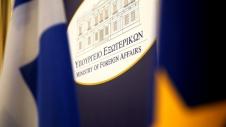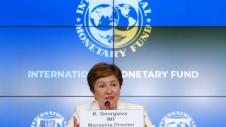Gvernment spokesman Stelios Petsas said that the message to Turkey aired by both Greece and the international community is clear: "be done with provocations, so that talks can begin," speaking on SKAI TV on Saturday.
He pointed up that the framework agreed upon at the recent EU Foreign Affairs Council and also addressed to the Turkish President is just as clear: "de-escalation or sanctions."
"For the first time we have a list of sanctions, which are strict and can be implemented in whole or in part. Unless there is an imminent de-escalation, it is certain that things will be very difficult for Erdogan at the European Council on September 24,25," he underlined.
"The NATO secretary general's talk about an alleged agreement should not have taken place. He had to stay at the technical level, as per his proposal, and not create impressions either abroad or at home. We have said many times that whoever holds public office must act with the seriousness required by the office he holds," adding that the only open issue with Turkey is the delimitation of maritime zones.
Alt FM Varvitsiotis: 'Dialogue with Turkey impossible under threat of gunboats, blackmail'
Alternate Foreign Affairs Minister Miltiadis Varvitsiotis said that Greece "continues to prove that it supports and promotes dialogue with all its neighbors without exception, always guided by the notions of peace, cooperation, respect for the rules of International Law and the principle of good neighborly relations," speaking to Parapolitika newspaper on Saturday.
"Dialogue, however, cannot take place under threat of gunboats and under a regime of blackmail," he added and continued: "our territorial sovereignty is and remains non-negotiable. Greece is ready for any eventuality. We have the way and the means to respond, whenever we are challenged."
He described the sanctions framework proposed by EU High Representative Josep Borrell as a good basis for discussions at EU leadership level in September's Summit, and called the lifting of the arms embargo on Cyprus by the US as a "historic move, which comes at an important and turbulent moment for international affairs in the southeastern Mediterranean," and "is proof of recognition of the role of Cyprus as a country that contributes to regional peace."








